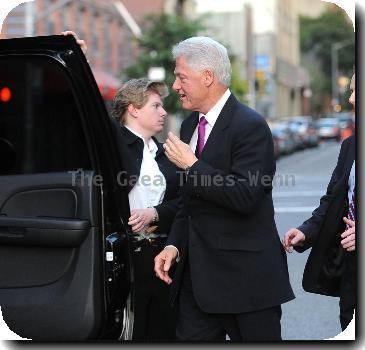Poll finds strong anti-incumbent sentiment in a midterm election year
By Philip Elliott, APFriday, February 12, 2010
Poll finds strong anti-Washington feeling
WASHINGTON — Extremely high anti-incumbent feelings toward Congress are shaping potentially brutal midterm elections that typically see losses for the party that controls the White House, a poll found. Those anti-incumbent feelings match the high levels of 2006 and 1994 — both years when control of Congress changed hands.
A Pew Research Center poll of registered voters released Friday found just fewer than half of voters would like to see their current member of Congress win another term and a fifth of voters said they would consider their vote as one against President Barack Obama.
With the struggling economy, unemployment at 9.7 percent and billions of taxpayer dollars used to bail out Wall Street, populist anger toward Washington is setting up an election year when voters have a strong “throw-the-bums-out” sentiment.
In recent midterm elections, the party in control of the White House has seen an average of 28 seats lost in the U.S. House, where every seat is up for grabs. President Bill Clinton suffered a devastating blow in 1994, handing Republicans Congress and setting back his agenda.
Privately, Democrats fear history could repeat itself in the midterm elections and are thankful Obama doesn’t face voters until 2012. The public’s favorable opinions of Republicans have increased by 6 percentage points from late summer and are now almost at the same level as Democrats.
The Pew poll did have a few bright spots for Obama, who has seen his own popularity remain flat for months, with 49 percent approving of his job performance as he heads into his second year in office.
In 2006, when President George W. Bush’s GOP lost control of Congress, 35 percent said they were rebuking Bush with their vote in a poll just before the miterms, compared to 20 percent who say the same about Obama now. And Democrats retain an advantage over Republicans on who can do a better job on issues like education, health care and energy problems. But the two parties are ranked about even when it comes to handling the economy, a top issue.
The Pew poll finds anti-incumbent sentiment is at least as extensive today it was during the 2006 and 1994 campaigns. Even so, by the end of the 2006 campaign, 55 percent of voters wanted their own representative re-elected. Almost four years later, that number is 49 percent.
Part of the anti-incumbent sentiment is reflected in the so-called “tea party” movement that has called for reduced government, lower taxes and generally libertarian or conservative principles. While it’s a rallying cry for those frustrated Americans, a large plurality — 42 percent — said they have not heard of the movement or lack an opinion about it.
The stalled health care overhaul also is frustrating voters. More Americans oppose the health bills than support them by a 50 percent to 38 percent margin. Inaction, though, is not their preferred path: six in 10 either favor the current health care bills or would prefer that Congress keep working on another health care bill.
Pew interviewed 1,383 adults by cell or home phone, including 1,129 registered voters, from Feb. 3-9. The poll has a margin of error of plus or minus 3.5 percentage points, both for the entire sample and for registered voters.
On the Net:
Pew Research Center: www.people-press.org
Tags: Bill Clinton, District Of Columbia, Geography, Health Care Reform, House Elections, Mid-term Elections, North America, Political Issues, Public Opinion, United States, Washington

